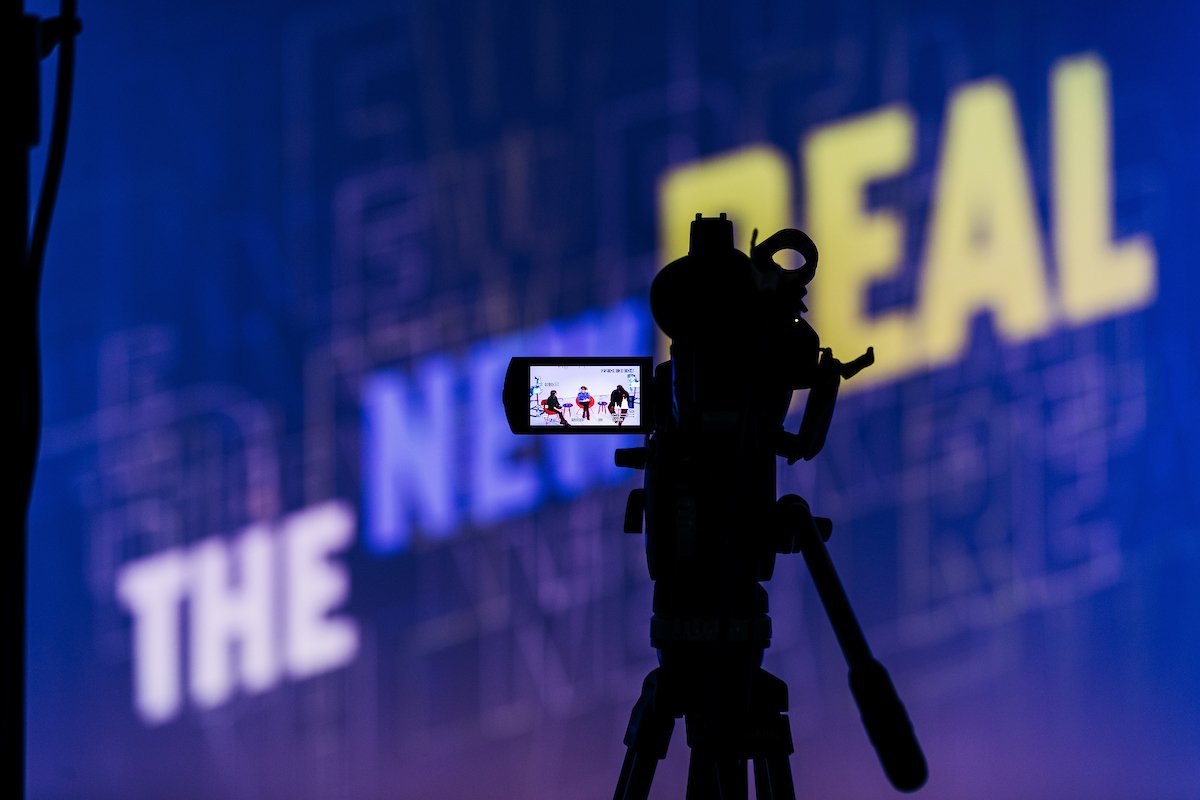Image Credit: Photograph by Andrew Perry
Event
Free
Public & Cultural Sector
Part of EFI Love Machine Season
Register Below
5th May
19:00-21:00
Doors open at 18:30
New Real Salon: The Algorithmic Turn
Join us for the second iteration of The New Real Salon, as we gather our community together, to explore how the new generation of powerful AI tools is opening unprecedented opportunities for human-machine creativity.
This event will showcase the ways Artificial Intelligence (AI) in art and design can generate astonishing and unpredictable outputs that help us navigate the complex world of machine learning and envision future applications for these emerging technologies in the creative sector and beyond.
While wary of hype cycles, we are now in the midst of what some call a "golden age for AI art". With new capabilities, come new challenges. The new generation of tools now available for artists, are driven by complex algorithms that are black boxed and not accessible to human understanding. With this the New Real’s research and creative community brings you this exclusive Salon.
About this event
Responding to EFI’s Love Machine theme, this New Real Salon brings into the light the relationship between the artist and AI technology. At times of upheaval like this, artists are at the forefront, helping to illuminate the ways emerging technology impacts on life at a profound level. At the same time the New Real’s research themes look to reimagine interactions between humans and machines, increase accessibility and interpretability for artists and foster transformative intelligent experiences for audiences.
At this event we will celebrate the announcement of the winner of The New Real 2023 AI Art Commission: Uncanny Machines, which explores the uncanny interplay of humans and machines, and the social implications of recent developments in AI. Hear about work in progress by our newly commissioned artist, and from our guest speakers; activist and self proclaimed cultural engineer Phoenix Perry, who will share insights into generative AI creative work, and leading academic in the field of Internet law, Lillian Edwards, who will join the conversation with Kasia Molga and whose longstanding research explores postmortem digital reincarnations.
The Event features a showcase of five artist talks by the recipients of The New Real 2023 Development Grants, which allowed the five artists to conduct research and development using The New Real’s AI Platform. The New Real Art Commissions push the boundaries of human-machine creativity to generate artworks combining machine learning methods with human intuition and embodied experience, discovering features that are not in the data, and exploring urgent challenges for our times.
Important Notice: This event will be photographed, recorded and live streamed and the data used for research, promotional or recruitment purposes for the University and University approved third parties. For further information please contact the organisers.
This event is part of EFI’s Spring event season, ‘Love Machine’, in collaboration with the Turing AI & Arts Group and part of a year-long celebration marking sixty years of research into computer science and AI at the University of Edinburgh. The New Real Commission is a partnership between The New Real at University of Edinburgh, Scottish AI Alliance, Alan Turing Institute and British Library.
Speakers
The New Real 2023 AI Art Commission Artist
To be announced on the evening
Professor Drew Hemment is The New Real’s founder and principal investigator. Drew is an artist, designer and academic researcher, who over 25 years has been one of the key figures who has shaped the field of digital art and culture. He is Professor of Data Arts and Society, Chancellors Fellow and Director of Festival Futures at Edinburgh Futures Institute and Edinburgh College of Art within University of Edinburgh. He presently leads The New Real and Experiential AI in partnership with the Alan Turing Institute and Edinburgh's Festivals, supporting significant new artistic works, and exploring new paradigms for creative, fair and inclusive AI.
Phoenix Perry is an interdisciplinary researcher and Senior Lecturer at CCI whose work spans the creation of embodied games and installations, the development of new interfaces and design methods that are more inclusive of disabled people, and the design of machine learning tools for games, VR, and accessibility. An advocate for women in games and creative coding, she founded Code Liberation Foundation, an organisation that has taught over 6000 women to program computational creative work for free since 2012. A pioneer in the application of interactive machine learning to developing new embodied interactions in VR and gaming, she worked with Prof. Fiebrink to develop the InteractML tool for Unity and Unreal, which currently has more than 50k users on the Epic Marketplace.
Lilian Edwards is a leading academic in the field of Internet law. She has taught information technology law, e-commerce law, privacy law and Internet law at undergraduate and postgraduate level since 1996 and been involved with law and artificial intelligence (AI) since 1985. She is a partner in the Horizon Digital Economy Hub at Nottingham, the lead for the Alan Turing Institute on Law and AI, and a fellow of the Institute for the Future of Work. At Newcastle, she is the theme lead in the data NUCore for the Regulation of Data. Her research revolves around the regulation of new technologies but in particular the Internet, and the Internet of Things. In recent years she has moved towards specialisation in privacy and data protection, especially as applied to AI and algorithms.
Matjaz Vidmar is our co-investigator, an interdisciplinary researcher, lecturer and strategist at the University of Edinburgh. He is an (Astro)Physicist by training, now examining innovation processes and (inter-)organisational learning and change, as well as other social dimensions of emerging technologies. He has an interest in using experiential Ai to create intimate interpretations of global datasets, in particular from Space & Satellite data, to influence sustainable development through futures thinking/literacy tools. He co-leads the delivery of the research portfolio of The New Real programme.
This event is part of a year-long celebration marking sixty years of research into computer science and AI at the University of Edinburgh. Starting in 1963 with a small group of machine intelligence pioneers, and computer science innovators, the University has 60 years of achievements to celebrate during 2023, and its leadership in future technologies to share. More information about the celebration: edin.ac/60-years-computer-science-ai
About The New Real
Established in 2019, The New Real is a unique hub for AI, creativity and futures research. It is a partnership between the University of Edinburgh, Alan Turing Institute, and Edinburgh’s Festivals. Its research explores how AI impacts on life at a profound level, often interacting with us in fascinating and unanticipated ways, and illuminates how emerging technology can become a creative, playful and deeply impactful part of everyday living.
The New Real team believes that art and creativity can help to radically change how we think about AI design, moving beyond the current paradigm of learning patterns from large amounts of data, to embrace human traits such as bias, disagreement, and uncertainty as a signal with creative potential rather than noise that needs to be removed. They devise imaginative ways to experiment with new experiences, practices, infrastructures and business models, and to empower people be agents of positive change.
The Alan Turing Institute
The Alan Turing Institute is the national institute for data science and artificial intelligence, with headquarters at the British Library
The Scottish AI Alliance
Delivering Scotland’s AI Strategy Scotland’s AI Strategy. It was launched in March 2021 with a vision for Scotland to become a leader in the development and use of trustworthy, ethical and inclusive AI. The Scottish AI Alliance is the body tasked with delivering this vision and the actions outlined in the strategy. It is a partnership between The Data Lab and the Scottish Government.







